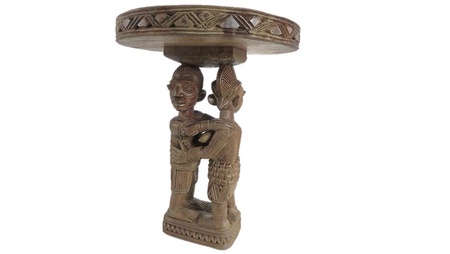
Stool carved by Lamidi Fakeye
Fakeye’s works emulate traditional Yoruba carving styles while also introducing new, innovative techniques and Christian themes.
From the 1st – 31st October the University celebrates Black History Month with a programme of events, talks, blogs and podcasts recognising the extraordinary contributions Black people have made in the UK and beyond.
View the wider programme and find out more information here.
On this page, find out about our events, learn about some of the University's first Black students, and discover collection items from West Africa.
Since the University of Aberdeen’s inception in 1860 with the merging of King’s College and Marischal College, Black students have formed part of its student body. Coming from parts of West Africa and the Caribbean, the majority in those early years were medical students.
Beyond 1900, Black students from Britain and abroad began to enrol at the University in larger numbers, and to make contributions in a great many other academic fields.
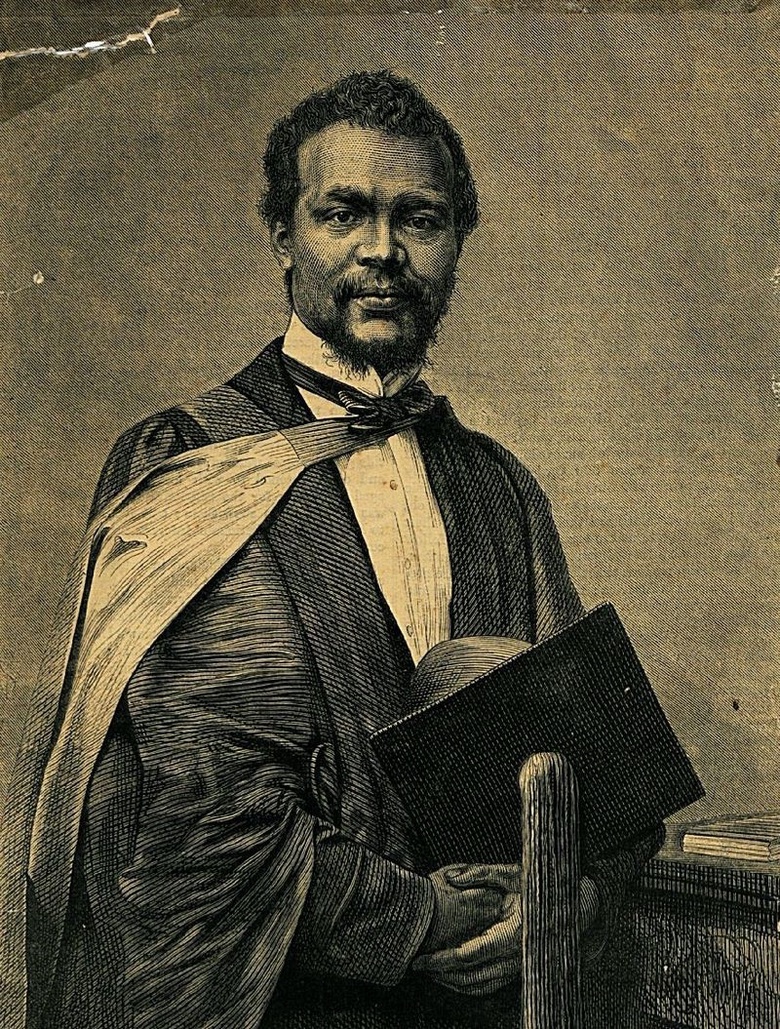
After graduating from Aberdeen Davis chose to volunteer as a military doctor in Sedan, France, where he treated soldiers wounded in the Franco-Prussian war and victims of smallpox. Tragically, he caught the illness himself and died in November of 1870.
Image: Lithograph from Dr Christopher James Davis's Obituary, 1870.
Learn more about Christopher James Davis
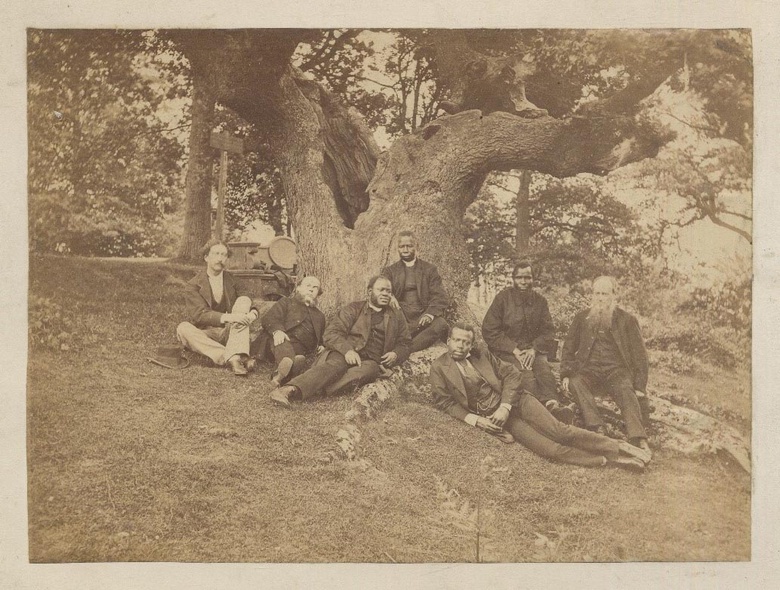
Nathaniel King was identified as gifted as a young boy and received some medical training at a missionary medical school in Nigeria. He came to Aberdeen after first studying at King's College, London, and graduated with a medical degree in 1876. He became a practising doctor in Nigeria and was a leader in advocating for improvements in environmental sanitation in Lagos.
Image: A photograph of Nathaniel King, who is third from the right, courtesy of Between the Covers-Rare Books, Inc., New Jersey.
Learn more about Nathaniel Thomas King
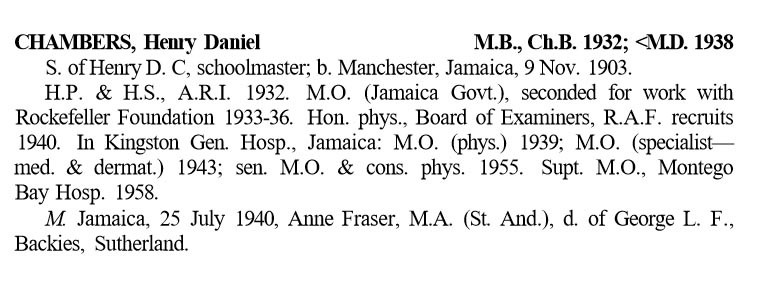
Our Roll of Graduates shows that he was seconded for work at the Rockerfeller Foundation after he received his Bachelor’s – it was during this time that he worked on the Jamaica Yaws Commission.
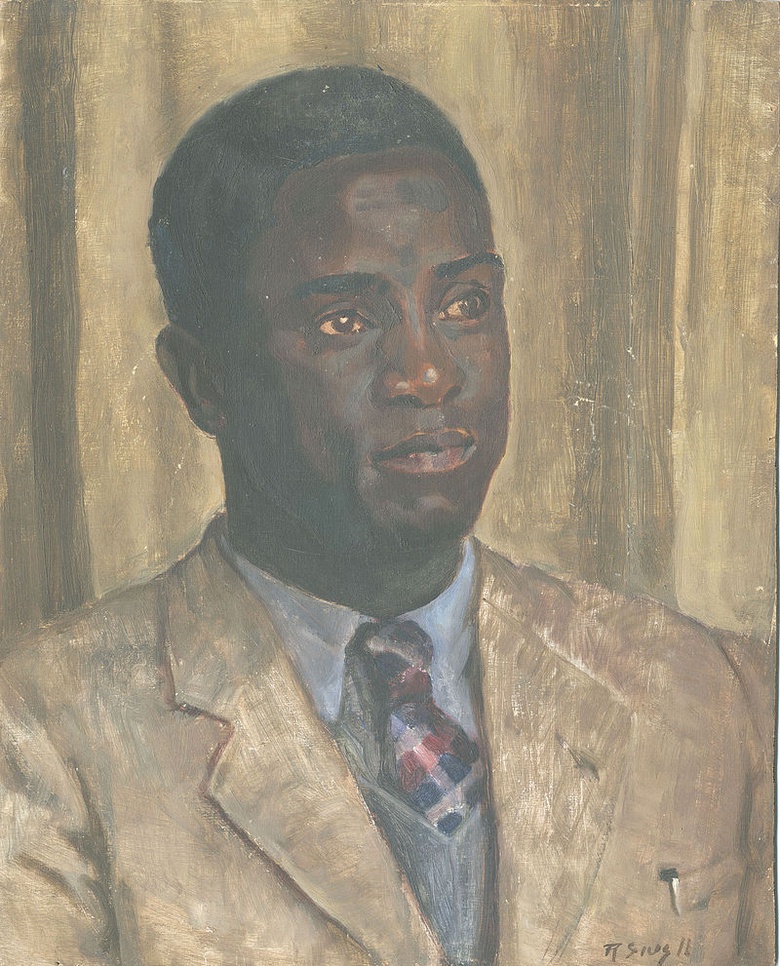
He went on to complete a PhD thesis at King’s College London, and became a renowned historian and founder and director of the Nigerian National Archives. As an academic he played a critical role in the rise of modern African historiography.
He then joined the History Department at University College, Ibadan, in Nigeria. In 1955 he founded the Historical Society of Nigeria and in 1956 he became the first African to be appointed a (full) Professor of History at University College Ibadan.
During the Nigerian Civil War, Dike was a roving ambassador and represented the Biafran cause. After the war, he was appointed the Andrew W. Mellon Professor of African History at Harvard University.
One of Dike’s greatest contributions to African intellectual traditions was his reclamation of African cultural and historical heritage from Eurocentric narratives.
The Kenneth Dike Library at the University of Ibadan was named in his honour. His portrait, painted by Robert Sivell, forms part of the University of Aberdeen's art collection and is currently on display in the University offices.
Dike's portrait entry on Primo
It wasn’t until 1892 that women were first admitted to study at the University and it is not known when the first Black woman matriculated. More archival research is needed to be able to tell her story and the stories of other students of colour from throughout the University's history.
Digitised and searchable copies of the University's Rolls of Graduates are available online.
Further archival research can be carried out through the Wolfson Reading Room.
These artworks were made by Lamidi Olonade Fakeye (1928–2009), a Yoruba Nigerian sculptor and carver, and his brother Akin Fakeye. Yoruba people come from West Africa, including Nigeria, Benin, Togo and Ghana.